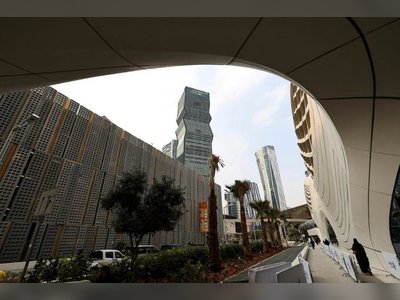
Turning on crypto means turning our backs on vulnerable millions
Cryptocurrency remittances are now a lifeline for Afghans, after the abrupt US withdrawal led to Western Union temporarily ceasing operations, and banks in the country severely limiting withdrawals.
As regulators in remittance source countries like the US and UK turn their sights to crypto, they should remember how indispensable those currencies are to some of the world’s most vulnerable people.
Crypto will become increasingly indispensable as the local currency - in Afghanistan and elsewhere - becomes not only difficult to access but unreliable as a store of value. Conflict fuels inflation, which makes currencies less valuable, or sometimes worthless.
If we regulate cryptocurrency transfers to appease the crypto hawks at home, we risk turning our backs (again) on those who need this asset class the most; the Afghani people and many others like them.
Afghanistan: A textbook use case for cryptocurrency
With the Taliban takeover comes the freezing of Afghanistan’s financial system too. Foreign aid has halted, which makes up approximately 40 per cent of Afghanistan’s GDP according to the World Bank. Similarly, foreign reserves of the Afghanistan central bank have been frozen, which is approximately $9 billion.
What’s more, in response to the Taliban’s take-over and western countries halting foreign aid, international money transfer companies like Western Union and Moneygram shut off their services (in some cases they have now resumed activity, for now), leaving the average Afghani with no way to engage with the global financial system and crucially no way to receive remittances from relatives abroad.
Remittances, the practice of sending money ‘back home’ from rich countries, makes up approximately 4 per cent of the country’s GDP. In an economy that is so heavily cash-dependent, the sudden crumbling of the local financial infrastructure may well mean the difference between life and death for many Afghans.
For remittances to continue to be a lifeline, they need to be fast. When money is needed, it is often needed instantly. An internally displaced person, for example, cannot wait for 3-5 days whilst funds are cleared; they need food, fuel, and medical supplies today.
Bitcoin ‘maximalists’ make wide-eyed claims about how crypto will change the global economic system. Whether you believe them or not, we can see that crypto has already revolutionised remittances in unstable, conflict-ridden places. Afghanistan presents a textbook use case for cryptocurrencies in failed states.
Crypto use accelerates in countries with hyperinflation
Sometimes, sheer necessity creates the strongest argument for new tech. Afghanistan is 20th on the list of 154 countries in the Global Crypto Adoption Index formulated by Chainalysis, a Blockchain data platform. When adjusted for peer-to-peer transactions (including remittances), it ranks 7th. In 2020, Afghanistan didn’t even make the list.
Afghanistan is not alone. Crypto usage has spiked recently in Lebanon, Turkey, and Venezuela. Those people are not trying to get rich - they are simply trying to receive funds from relatives abroad, and stop their wealth from disappearing at a time of high inflation.

Venezuelan-based crypto consultant Jhonnatan Morales has observed, “Many people are mining and trading cryptocurrencies not to acquire products, but to protect themselves from hyperinflation.” Venezuela has the third highest crypto usage in the world. It also has one of the highest rates of inflation (up to 2,940 per cent).
Lebanon is another example. As the Lebanese Lira lost 80 per cent of its value, Lebanese downloads of Bitcoin wallet BlueWallet, for example, grew by 1,781 per cent in 2020, compared with the same period in 2019.
But Afghanistan may be the most urgent and tragic case of why the 'global south' needs crypto. As cash becomes scarce, prices soar and as the Taliban loses the foreign aid the country was previously dependent upon, the already crumbling Afghani currency will get even weaker.
By allowing the Afghani people to receive, store and spend their wealth in Bitcoin, they may be able to protect themselves against the worst effects of a failed state.
Regulation must consider the most vulnerable
And this is what we must remember when we regulate cryptocurrencies in the west. That regulation will not just affect speculators; it will hit those who want to send remittances ‘back home’. Those who receive remittances have the most to lose.
When Federal Reserve chairman, Jerome Powell publishes his report on the next stage of cryptocurrency regulations, I hope that he doesn’t forget those who need cryptocurrency the most; the Afghani people, and millions across the world like them.
Whilst the west may have turned its back on the people of Afghanistan, we need to make sure that our laws don’t continue to leave them in the dark.
We need cryptocurrency regulation that ensures those vital financial lifelines are not. If we do, we are closing another door of hope for the people who need it the most.











